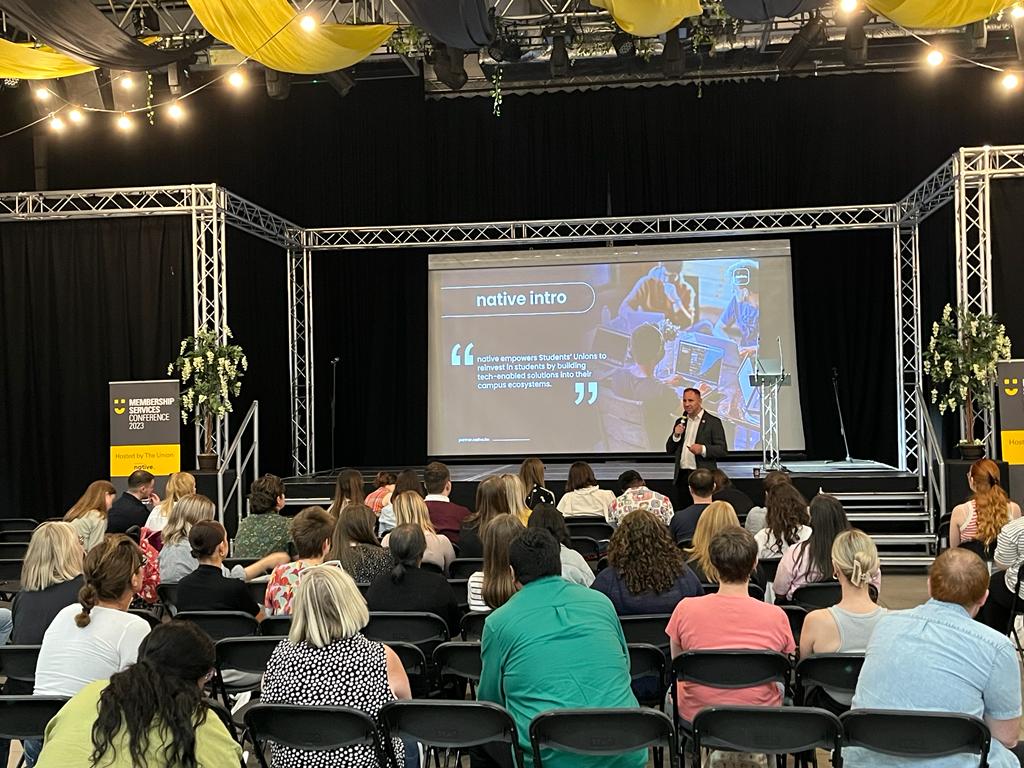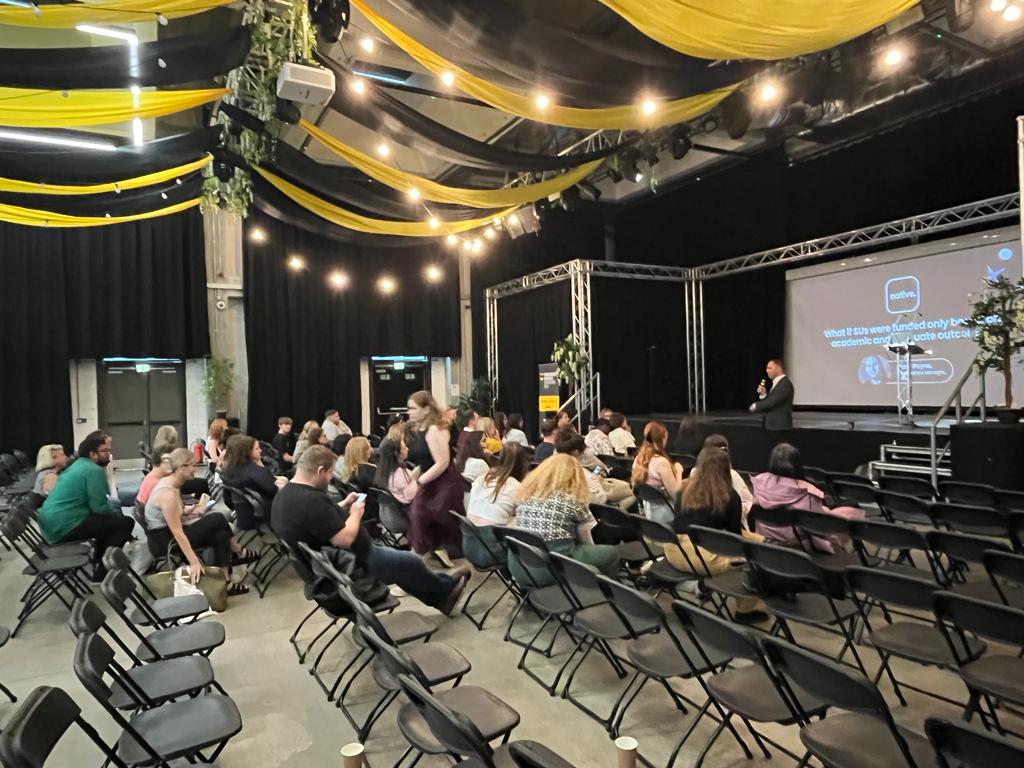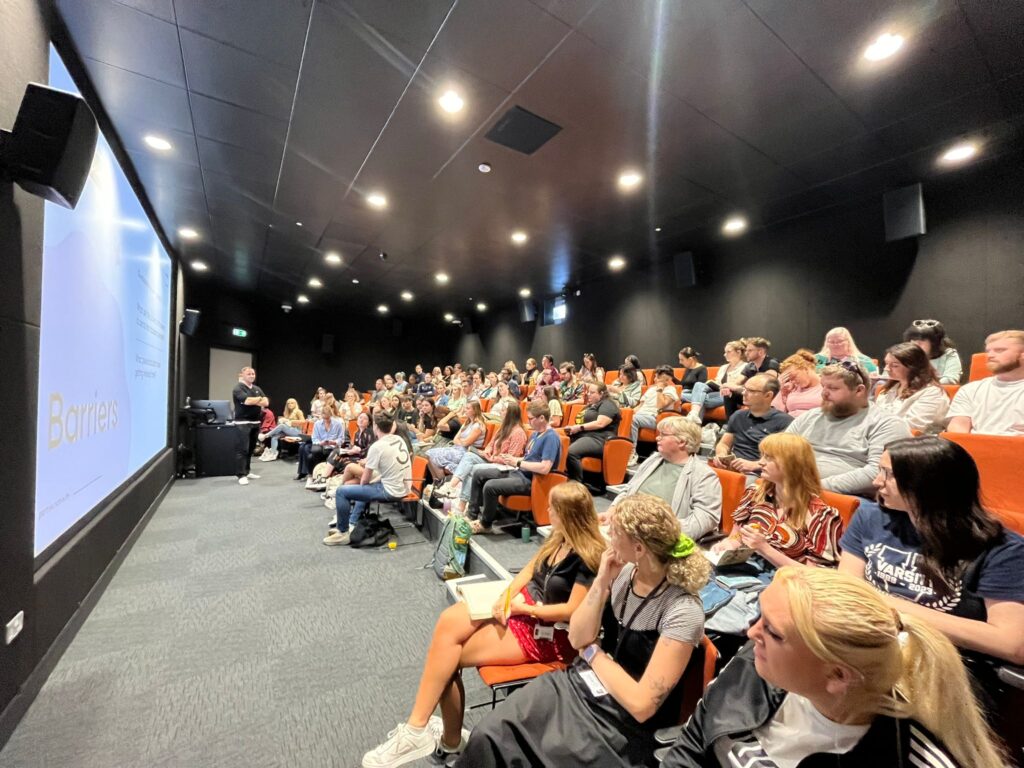Blog
MSC recap: What if SUs were funded only based on academic and graduate outcome?
This was the hypothetical question that we discussed in our lab session, early on day 1 of Membership Services Conference 2023. With 9 discussion groups across 3 sessions, there were some revolutionary ideas shared – and we felt they were too good to keep to ourselves.
To recap…
We invited a cross-section of the SU movement to engage with a hypothetical situation, in which SUs funding was based purely on the graduate outcomes of its students. In groups, you discussed what problems and challenges this would result in, and shared some solutions.
Cibyl data* shows that many students opt to go to university because of the career options it provides – with 48% picking an institution because it keeps their career options open. In addition, 36% feel that attending university makes them more desirable to future employers, and 27% believe it leads to better job security.
It’s clear that university is a stepping-stone into a career. But there’s a disconnect. From the vantage point of university itself, many students are flummoxed by the job market. 65% believe that they will struggle to get a job post-university – that’s two in three students. And 98% of students think they could benefit from more practical, career-based training, according to Forage.
It’s for this reason that native wanted to bring the question of employability to Membership Services Conference 2023 – to see what you think the challenges are, and how we can solve them together. Here were some points that came up again and again, across every discussion group.
Consensus 1:
“Students are embarking on activities that make them more employable – but they don’t know how to articulate it.”

The challenge
It was clear from the first discussion that your members are already doing a lot to boost their employability skills. But many of them don’t actually know it. Students clearly see the value in being part of a sports team for example, or holding an officer position within a society – they just don’t connect these activities with their future employability. We discussed the importance of encouraging self-reflection in these students, so they understand how these activities translate into the world of work.
Some SUs are already:
Providing an employability transcript: in other words, a record of all the career-boosting opportunities students are involved in. There was also a suggestion that career-building activities should be reflected on students’ university transcripts.
Encouraging an outcome-based approach: one SU shared that they’d mapped out a variety of graduate roles, matching them with the employability skills students needed in order to be successful. This empowered their students to work towards their desired career earlier.
Educating on the value of committee positions: Other SUs are encouraging clubs and societies to provide more information and transparency about what skills students can gain from holding committee positions – such as public speaking, budgeting and organisation.
Creating tangible metrics: Some of you described how you’d connected with university careers services and employability awards, creating tangible metrics that shows students how their career development is progressing. Another suggestion was to create a points-based system, similar to the Duke of Edinburgh Award.
Consensus 2:
“Students aren’t always aware what’s available to them in terms of career development and advice”

The challenge
With so many different career ambitions contained within a student body, it goes without saying that there’s no “uniform” way to offer careers advice to students. But one of the most common themes to emerge from our discussions was that students simply don’t know what’s available to them.
International students face particular challenges in understanding how their careers might progress in the UK, with many requiring sponsorship to work post-graduation. You reported a lack of information for these students themselves – but also for employers who might potentially look to sponsor visas.
We also talked at length about non-traditional career paths, and how we can ensure that students don’t get “pigeonholed” into a career based on their degree.
Some solutions you proposed:
Align with the university. One group suggested using lectures and seminars as conduits to upsell and promote Students’ Union-owned opportunities. Many of you felt a burning need to open a dialogue with specific faculties, in order to identify how SUs can support course-specific activity driven by the academic departments.
Know your strengths as an SU. You particularly feel that you’re equipped to support on developing life skills and recognising graduate attributes – as well as signposting to other opportunities. Across every discussion, we acknowledged that SUs can’t do it all – certain opportunities have to be championed and carried forward by the university.
Speak directly with students. Another possible solution: create a brainstorming group with various student representatives to discuss and collaborate on what employability skills they’re looking to develop, what these skills mean to them, and how they will benefit from them in the long run.
Some SUs are already:
Running employability fairs. Many of you stressed the value your members have derived from these – with a caveat. We agreed that the most valuable employability fairs showcased at least one employer to correspond with every academic department at your university, and a good breadth of local and national employers, too.
Collaborating with local employers. We agreed that involving them creates a great way for students to get involved in the wider community, develop key skills, and maybe even secure a postgraduate position with a local org.
Publicising freelance career pathways. Those who are doing this are not only exploring the type of work their members could do, but also publicising how they can logistically build a freelance career. It’s important to educate on the practicalities.
Consensus 3:
“Since COVID-19, paid work has become a priority over volunteering or other unpaid career-building activities”

The challenge
We know that one in five students have been so acutely affected by the cost-of-living crisis that they’ve been forced to stop buying essentials – including food, rent and fuel. In that same group of students (surveyed by native back in February 2023), 61% of students are in paid employment – with a further 26% on the hunt for a job. This requirement to undertake paid work sets very little time aside for other career-building activities.
When we discussed this at MSC, many of you felt that if money was no object, students would spend a lot more time volunteering or holding committee positions. But for many of you, applications for student volunteering positions have been in decline, indicating that students have had to focus their time and energy on getting paid work.
Some solutions you proposed:
Start within your own organisation. We discussed how Students’ Unions are employers in their own rights – with many taking on part-time student staff in bars, or shops. Enriching these opportunities by educating students on the skills they can gain from them, inviting them to training and development sessions offered to full-time staff, and providing awards or transcripts that highlight these skills – are all great ways to supercharge the value of part-time work.
Bring alumni back to share their career journeys. In comparison to a lot of career-building activities, this is one which takes up a relatively short amount of time. By creating alumni networking sessions, you can plant the seed of connection among your past and current members, opening up career opportunities as you go.
While no lab session – however comprehensive – could solve the wicked problem posed by the cost-of-living crisis, we did agree that part-time work itself can build the skills required for post-university employment. We just need to create ways for students to see this, and articulate it.
Consensus 4
“Career development isn’t always linear.”
This ran through every discussion like a golden thread. Students change their minds – and that’s fine. They should be empowered to explore other career opportunities. We talked about how it’s less about assigning students to a career path, and more about getting them to interrogate whether they’d like to work in a certain way, and if they’ll be able to progress in a particular role in the long-term.
For this reason, it’s really important to start providing career advice as early as possible. Some of you felt it should be available from day one of Welcome Week. Others called for a little more leeway, bringing in initiatives in February, once the dust had settled, or even in second year. None of you felt that it should be limited to third year – this wouldn’t give students enough time to see what’s out there and understand what’s available to them. By building in employability information from early on, students have more time to U-turn as much as they want.
Curious about employability?
We are too. That’s why, since acquiring Gradguide, native has been working hard on solutions that will bring students closer to career readiness. We’re almost ready to share more on this. but In the meantime…
*Cibyl School Leaver UK 2023: 11,720 respondents, 12–18-year-olds, 2,000+ schools/colleges, nationally representative, conducted Jan-March 2023